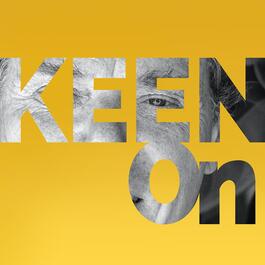
Episode 2474: What Thomas Mann can teach America about how to save its democracy
On Thursday, we featured a conversation with Red Scare author Clay Risen about Joe McCarthy, Donald Trump and the Paranoid Style of American History. Today our subject is one of the best known victims of McCarthyism - the German writer Thomas Mann. In His Liberties essay “Mannhood: The Coming Revival of Democracy,” Morten Hoi Jensen writes about how Mann, as an exile from Nazi Germany, toured the United States in the spring of 1938 lecturing in support of New Deal democracy. Thomas Mann’s brave defense of American democracy might now appear as a model for dissenting intellectuals in Trump’s America. Especially since Mann himself became a victim of the anti communist witch hunt after the War. Here are the five KEEN ON takeways in our conversation with Morten Hoi Jensen about Thomas Mann: * Thomas Mann was initially a conservative artist who became an advocate for democracy as he witnessed the rise of fascism in Germany. His political views evolved significantly from his earlier "apolitical" stance to becoming an outspoken critic of Nazism. * Mann's 1938 book and lecture tour "The Coming Victory of Democracy" warned Americans that democracy was vulnerable even in the United States. He saw parallels between pre-Nazi Germany and aspects of American society, which later contributed to his decision to leave the US during the McCarthy era. * Mann became a victim of McCarthyism in the 1950s. He was labeled as a "premature anti-fascist" by American reactionaries despite his prominence as a Nobel Prize-winning author who had been welcomed to America and had even visited the White House during the Roosevelt administration. * Throughout his life and work, Mann engaged in intense self-criticism and introspection about Germany's descent into fascism. Unlike many other political commentators, he looked inward and questioned his own early nationalistic writings, wondering if he had inadvertently contributed to Nazi ideology. * Mann's approach to politics was always that of an artist rather than a political analyst. His views were complex and often contradictory, yet his willingness to engage with difficult political questions through both his fiction (particularly in "Doctor Faustus") and his public speaking made him an important moral voice during a tumultuous period in history. Morten Hoi Jensen is the author of A Difficult Death: The Life and Work of Jens Peter Jacobsen, which was published by Yale University Press in 2017 with a foreword by James Wood. His writing has appeared in The Washington Post, The New York Review of Books, Liberties: A Journal of Culture and Politics, The Literary Review, The Los Angeles Review of Books, The Point, The New Republic, The Wall Street Journal, and Commonweal, among other publications. He is represented by Max Moorhead at Massie & McQuilkin. Named as one of the "100 most connected men" by GQ magazine, Andrew Keen is amongst the world's best known broadcasters and commentators. In addition to presenting the daily KEEN ON show, he is the host of the long-running How To Fix Democracy interview series. He is also the author of four prescient books about digital technology: CULT OF THE AMATEUR, DIGITAL VERTIGO, THE INTERNET IS NOT THE ANSWER and HOW TO FIX THE FUTURE. Andrew lives in San Francisco, is married to Cassandra Knight, Google's VP of Litigation & Discovery, and has two grown children. Keen On America is a reader-supported publication. To receive new posts and support my work, consider becoming a free or paid subscriber. This is a public episode. If you'd like to discuss this with other subscribers or get access to bonus episodes, visit keenon.substack.com/subscribe
From "Keen On America"


Comments
Add comment Feedback